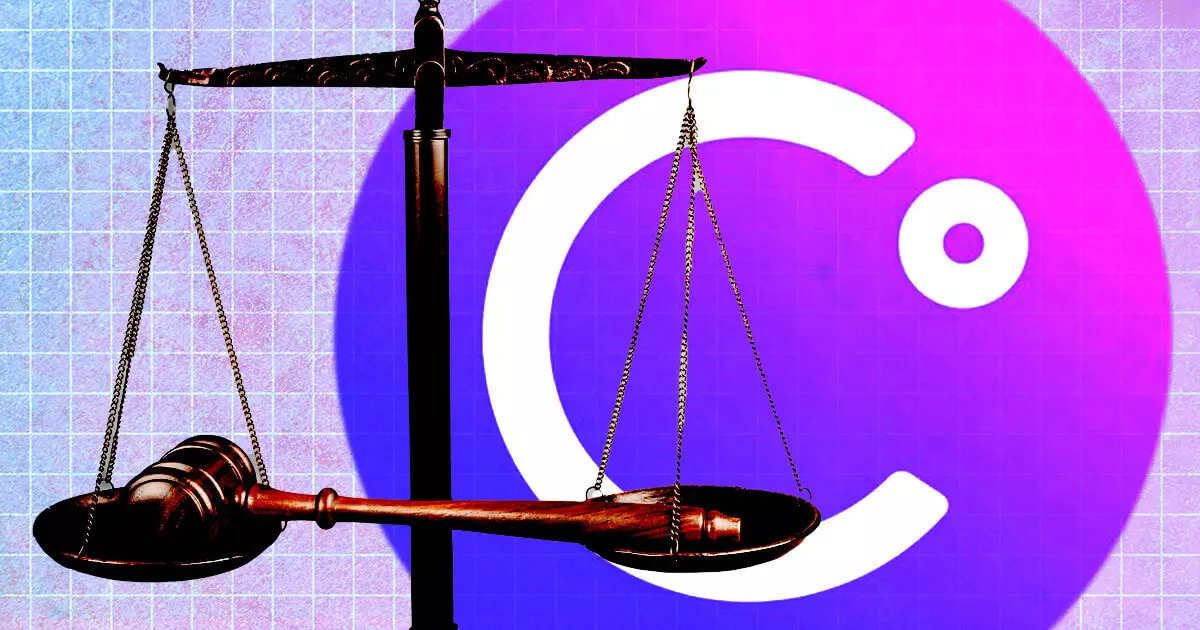The U.S. Securities and Exchange Commission (SEC) has filed an objection to a part of the reorganization plan put forward by bankrupt cryptocurrency firm Celsius. The plan involves the employment of Coinbase, a prominent crypto exchange, as the distribution agent responsible for returning funds to former users affected by Celsius’ collapse. However, the SEC has expressed concerns about Coinbase’s expected role, stating that it goes beyond the typical responsibilities of a distribution agent. Moreover, the SEC has highlighted inconsistencies between Celsius’ statements and its agreement with Coinbase. The regulator also suspects the existence of an additional agreement between the two companies, which it believes should be provided to the court. The SEC asserts that some trading services outlined in the agreement relate to concerns raised in its lawsuit against Coinbase. This article critically examines the objection raised by the SEC and its implications for Celsius and Coinbase.
In its objection, the SEC contests Celsius’ plan to engage Coinbase as the distribution agent. The regulator states that Coinbase’s intended role exceeds the customary duties of a distribution agent, as outlined in the filing. The SEC notes that Celsius has contradicted itself by claiming that Coinbase will not provide brokerage services, while the agreement with Coinbase suggests the opposite. Additionally, the SEC suspects the existence of a sealed agreement between the two companies. It argues that if such an agreement exists, it should be disclosed to the court and the SEC. The regulator also points out that certain trading services mentioned in the agreement align with concerns raised in its previous lawsuit against Coinbase.
Paul Grewal, Coinbase’s chief legal officer, responded to the SEC’s objections by stating that his firm is “proud to engage with Celsius to distribute crypto back to its customers.” Grewal questioned the SEC’s opposition to the distribution plan and indicated that Coinbase would address the matter within Celsius’ bankruptcy proceedings. However, Grewal did not provide specific arguments countering the SEC’s concerns.
Celsius initially halted withdrawals in June 2022 before filing for bankruptcy a month later in July. At the time of the bankruptcy filing, reports revealed that Celsius was indebted to its creditors, including retail users, for a staggering $4.7 billion. Notably, this amount did not include Celsius’ institutional partners. The SEC’s lawsuit against Celsius regarding its CEL token is unrelated to the bankruptcy case. The securities regulator accuses Celsius and its former CEO, Alex Mashinksy, of conducting unregistered and fraudulent security offerings through the sale of the CEL token.
As part of its latest complaint filed in the bankruptcy case, the SEC has requested the court to determine whether CEL qualifies as a security. The SEC’s intention is to limit the effects of this ruling solely to the ongoing dispute concerning Celsius’ distribution plan. The regulator argues that an expansive ruling on CEL’s security status could potentially hinder its separate securities case against Celsius.
The SEC’s objection and request for a ruling on CEL’s security classification could significantly impact Celsius and Coinbase. The court’s ruling may impact the distribution plan proposed by Celsius, particularly if CEL is deemed a security. Such a determination could subject Celsius to additional regulatory scrutiny and impose further restrictions on its operations. Moreover, if Coinbase is found to have violated securities laws by engaging in unregistered and fraudulent security offerings, it could face legal consequences and damage to its reputation.
The SEC’s objection to Celsius’ distribution plan raises concerns about Coinbase’s role and the potentially inconsistent statements made by Celsius. The regulator’s request for a ruling on CEL as a security adds another layer of complexity to the bankruptcy proceedings. The outcome of these legal developments will have far-reaching consequences for both Celsius and Coinbase, shaping their future actions and regulatory compliance.


Leave a Reply